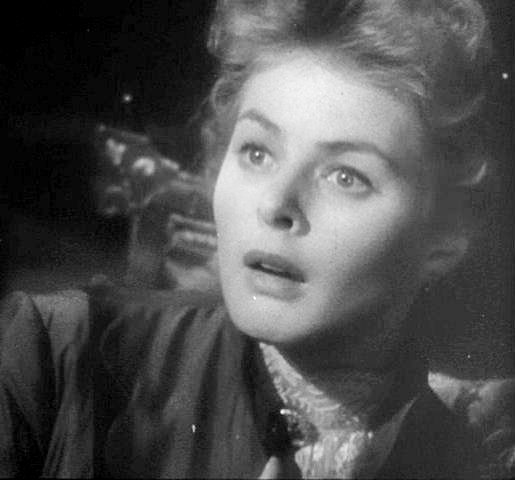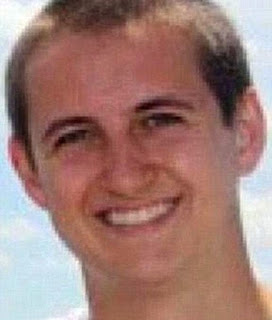DISCLAIMER: Almost 40 years ago, a dear friend of mine
committed suicide by carbon monoxide poisoning in his running vehicle.
I claim no objectivity in what follows.
Earlier this week, Leigh Lundin posted
The Wickedest Woman in the World, a great blog post about the Michelle Carter case. A lot of us chimed in. During the discussions, I agreed that an article about Munchausen by Proxy Syndrome would be valuable, along with a little thing on hybristophilia, but later, later, later… And I will. But after I listened, briefly, to Rush Limbaugh (I try to keep an ear on what the self-proclaimed Doctor of Democracy is up to) and got ticked off, I've decided that the REAL description of Ms. Carter's behavior is
bullying.
You see, Rush was defending Michelle Carter, saying that the case against her is nothing but liberal BS, because liberals don't believe in free speech (oh, Rush, if you only knew!). He said, "this woman, Michelle Carter, she may be just downright mean. She may have no heart. She may just be brutal, getting on the phone and telling this guy to kill himself, ’cause he said he was going to, and if he doesn’t now he’s a coward and whatever. But she didn’t kill him. And yet so many people are coming along thinking he didn’t do, he’s a victim, she did it. This is 180 degrees out of phase. If we’re gonna start penalizing people for things they say or things that they think, but don’t actually do — now, I know what some of you think. “But, Rush, you just got through saying that the Democrats turned this Hodgkinson guy into a lunatic.” I do believe that. But..." (See full
Transcript for more of the typical Rush twist on how it's different when…)
Well, first off, sorry, Rush, but we already penalize people for things they say. We have freedom
of speech, not freedom
from consequences of said speech. But more on that later.
Secondly, what Rush presented was the standard bully's defense:
- "I didn't MAKE them do anything."
- "It's THEIR fault if they can't take a joke."
- "Can I help it if they're a loser?"
- "I didn't do anything wrong."
- "Hey, 'sticks and stones will break my bones but words will never hurt me'. So what's the problem?"
Okay, show of hands, how many people out there have ever been bullied? How many felt helpless? How many felt afraid?
 |
| Scut Farkus |
Let's use Scut Farkus (of "A Christmas Story") as an example: Scut had all the neighborhood boys terrorized to the point that, when he came up and yelled at them "Come here!" they came. No, he didn't lasso them or hold a gun, he just yelled and they did it. And there's at least one scene where a boy turns around and gives him his arm to twist. They were thoroughly cowed.
But it can get infinitely worse than that.
When we first moved up to South Dakota, I subbed at the high school for a while, and a student there committed suicide because of the constant, non-stop bullying that he received. That was before internet and cellphones. Google bullying and suicide and see the number of hits you come up with. And cyber-bullying, with teens and adolescents, is pushing the number of suicides up.
According to
PEW research on teens and cellphones, one in three teens sends 100 text messages a day. 15% send 200 text messages a day. And a certain percentage of that is cyber-bullying. And a certain percentage of that leads to
suicides. Michelle Carter exchanged over 1000 text messages with Conrad Roy, encouraging him, telling him, badgering him to commit suicide. What makes it worse is that she knew that he had attempted suicide already, back in 2012, and that he was battling anxiety and depression. After learning that he was planning to kill himself she repeatedly discouraged him from committing suicide in 2012 and 2014 and encouraged him to "get professional help". But then her attitude changed and in July 2014, she started thinking that it would be a "good thing to help him die" (
Wikipedia) Thus the 1000 text messages. That's cyber-bullying, and it worked. She even admitted it, in an infamous text to a friend - “I was on the phone with him and he got out of the [truck] because it was working and he got scared and I f***ing told him to get back in."
And why did Michelle Carter want Conrad Roy dead? Because she wanted to receive the sympathy of her classmates as the grieving girlfriend, who only wanted the best for her boyfriend, and the best was that he die.
How many of you have been or have known the victim of domestic abuse? There's often more verbal than physical, because it's all about control. Here are some of the many signs of domestic abuse, a/k/a bullying (from the
Domestic Violence and Abuse Checklist.):
Does the abuser:
- humiliate or yell at you?
- criticize you and put you down?
- treat you so badly that you’re embarrassed for your friends or family to see?
- ignore or put down your opinions or accomplishments?
- blame you for their own abusive behavior?
- see you as property or a sex object, rather than as a person?
- act excessively jealous and possessive?
- control where you go or what you do?
- keep you from seeing your friends or family?
- limit your access to money, the phone, or the car?
- constantly check up on you?
Notice that I did not include any physically violent act. All of the above are verbal, emotional abuse; and they're enough to leave the victim answering "yes" to, Do you:
 |
| Ingrid Bergman in "Gaslight" |
- feel afraid of your partner much of the time?
- avoid certain topics out of fear of angering your partner?
- feel that you can’t do anything right for your partner?
- believe that you deserve to be hurt or mistreated?
- wonder if you’re the one who is crazy?
- feel emotionally numb or helpless?
Domestic abuse is bullying, carried on into adulthood. There's a direct link between bullying in childhood and domestic abuse in adulthood (
Psychiatry Online): "Men who had bullied schoolmates once in a while were twice as likely to have engaged in violence against a female partner within the previous year as were men who said they had never bullied their school peers. And men who had admitted bullying frequently in school were four times as likely to have done so as were men who had never bullied in school."
On top of that, there's a direct link between domestic abuse and mass shootings (see
here and
here, too.) Because bullying is all about control and fear. Domestic abuse is all about control and fear. Mass shooting is all about control and fear.
Okay, that was quite a long and winding road. And not every bully, cyber-bully, or just narcissist is going to end up a mass shooter. But I noticed this in the Wikipedia article cited above: This decision "could set legal precedent for whether it's a crime to tell someone to commit suicide." My response?
I CERTAINLY HOPE SO.
Why wouldn't it be a crime to tell someone to kill themselves? Why wouldn't it be a crime to gaslight a person? Why wouldn't it be a crime to do your best to INCREASE someone's mental illness? Or to use their mental illness to your advantage?
Here's the deal, Rush and followers: I believe 100% in free speech. You can say anything you please, anywhere, any time. But I also believe that free speech has consequences. After all,
- If you yell "FIRE!" in a crowded theater, you're liable for the results.
- If you threaten the President's life, you're going to get a visit from the Secret Service.
So why, if you badger someone who's battling depression and mental illness with over 1000 texts telling them to kill themselves, and they do it, why wouldn't you be culpable?
Of course, the bullies would totally disagree: to a bully, all the consequences flow one way, onto the victim, who is solely responsible for what happens to her/him. And so we have Michelle Carter, new icon of free speech, who told her boyfriend to "get back in the f*****g truck" so that she could go cry about his death to her friends.
Next time, Munchausen by Proxy Syndrome and hybristophilia, or why Erik Menendez has a wife.






























